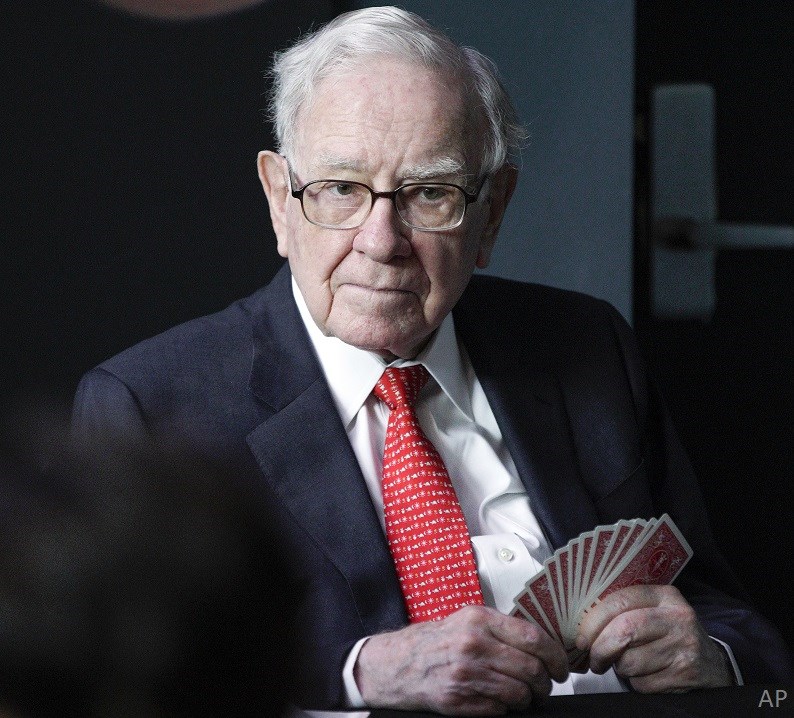Editor's note: Read the latest on how the coronavirus is rattling the markets and what you can do to navigate it.
Susan Dziubinski: Hi, I'm Susan Dziubinski with morningstar.com. Berkshire Hathaway is holding its annual meeting on Saturday for the first time virtually only. Here today with me to discuss Berkshire's valuation is Gregg Warren. Gregg is a senior analyst with Morningstar, and he covers Berkshire Hathaway for us.
Now, one question on the minds of investors is what impact the COVID-19 pandemic is having on Berkshire and its businesses. Can you comment a little bit about that?
Gregg Warren: Well, it's kind of difficult with Berkshire to know with full precision what kind of impact it's going to be because the company is not really the most transparent of firms when it comes to its operating subsidiaries. When we've been looking at building assumptions in our modeling--for example, a 25% decline in the value of the stock investment portfolio, we're trying to make sure we're being very conservative with our approach to valuation. Especially driven by all these uncertainties that have been created by the pandemic. Our current thinking right now is the company is going to be impacted by three different ways related to the pandemic.
One, historically low interest rates with the Fed cutting rates down to near zero. This opens up refinancing funding opportunities for many of Berkshire's operating subsidiaries as well as the parent company but should also lead to lower yields on cash and cash equivalence holdings, which were around $128 billion at the end of 2019.
We're also expecting to see more-volatile equity and credit markets, which will not only impact the large equity investment portfolio on the books, the insurance operations, but should provide some opportunities for the firm to put more capital work in the near term.
And then the third wave is going to be the U.S. and global recession. The question here is how deep and how long will the recession run? Just sort of back-of-the-envelope look at the firm, you're going to have some impact on the railroad business. They do a lot of stuff intermodal from the West Coast ports, a lot of shipping of agriculture, coal, other products, within the country. And we feel like BNSF is a little bit more at risk relative to its peers because even though it's been beating, say, Union Pacific, its closest competitor, on a volume and a revenue basis the past five years, it's been trailing it on an operating profitability perspective. And as we go through this crisis and economic downturn, our concern is that its peers might get more price competitive with BNSF, putting them at a bit of a disadvantage.
But when we think about sort of the recession impacts on the insurance business, tends to be a little bit more recession resistant than most. Same with the utilities. The manufacturing service and retailing operations is really where the bulk of the impact might be. As a result, we've pulled back on expectations for revenue growth and profitability for pretty much every business within their expectations. Now, there might be a couple of businesses within that business that go under. And that's something that was confirmed by Charlie Munger last week when he talked to The Wall Street Journal.
Dziubinski: Now we continue to assign Berkshire a wide economic moat rating. How stable are Berkshire's competitive advantages given what's been going on in the market and the academy and what we're expecting going forward?
Warren: Yeah, when you look at competitive advantages, especially if they're solid competitive advantages like Berkshire has in a lot of their businesses, those tend to remain in place during economic downturns. And it may actually even strengthen depending on the positioning of the company relative to its peers. In Berkshire's case, there are operations that will remain stable, like I was saying, insurance. Primarily because the firm has always been a disciplined underwriter in that business and the issues that are likely to impact the firm both from a claims and a loss perspective are probably going to be affecting the industry as a whole. When we think about stuff like pandemic insurance or business disruption insurance, a lot of that tends to get syndicated, which means it gets spread out across the industry as a whole. It's not like Berkshire is the only one that's going to be feeling losses. Pretty much across the board their peers are.
The question will be how much pricing hardens once we get out of this and who takes pricing and who doesn't. And that's where the competition sort of works in when we get through that. And then, when we think about the railroad, I was just mentioning the fact that, I feel like they're at a slight disadvantage on operating profitability perspective, and I'll have a close eye on them as we get through this to make sure that they're maintaining at least a decent positioning. Part of that comes with the fact that most of the industry's adopted precision schedule railroading, which has driven down costs within those companies. We'll have to keep an eye on that.
And then, what I was saying with the manufacturing service and retailing businesses, we don't expect much to change from a competitive positioning perspective. But we do, and we have thought this historically--our thesis on this part of the business has always been there's likely to be one or two or three businesses where their competitive advantage diminishes over time or they eventually go out of business, but it's not big enough to really sort of drag down results for the overall operations.
Dziubinski: Lastly, has the pandemic had any impact on our valuation of Berkshire Hathaway? And do we think that the stock is undervalued, fairly valued, or overvalued today?
Warren: We actually took the fair value down about 10% earlier this month after incorporating a lot of different assumptions, like the aforementioned 25% decline of the value of the stock investment portfolio, into our valuation model. The key here is as we get more clarity on the impact the pandemic is likely to have on different aspects of the business, through the filings of competitors as well as the firm itself, we expect to be updating our assumptions and perhaps might update our fair value estimate. That said, we've always traditionally stuck with a very conservative bent when we value Berkshire, given that the sum-of-the-parts methodology we use to value the firm requires a stripping of the company completely apart, valuing the different pieces, and then sticking it all back together again. Your margin of error increases the more you mess around with stuff and have a greater number of assumptions built into your modeling.
We try to stay as conservative as possible. We're comfortable where we are right now. But like we said, as information comes in, as we get better details on what the impact could be on, say, insurance claims, what the impact is on the manufacturing businesses, and whatnot, we will make adjustments to the model and that may impact the fair value as we move forward.
As far as the valuation goes right now, the company is trading around a 15%, 20% discount to our fair value estimate. If we look at it in a price/book basis, the shares are trading about 1.2 times. Our estimate for first-quarter 2020 book value, and then 1.2 times end of 2020, and 1.1 times end of 2021, relatively cheap when we look at it compared to historical values. And if you go back over the past five, 10 calendar years, Berkshire's generally traded around 1.4 to 1.5 times book value per share. If we look at it both on a price/fair value and a price/book value basis, the company is relatively cheap compared to past cycles.
Dziubinski: Greg, thank you so much for your time today.
Warren: Thank you for having me.
Dziubinski: For morningstar.com, I'm Susan Dziubinski. Thank you for tuning in.









:quality(80)/cloudfront-us-east-1.images.arcpublishing.com/morningstar/EF4CB6K62NHHZMLNN2TIHPGOYI.png)











